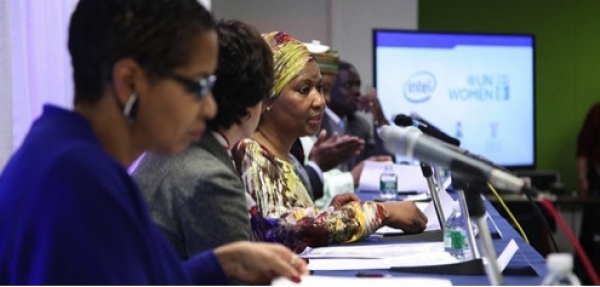
Women are not represented adequately in various career fields, and it has absolutely nothing to do with lack of intelligence. It does, however, have to do with preparation, especially when it comes to higher education.
Women do not have a strong presence in the sciences at universities, this marks the genesis of a gender disadvantage that endures in their careers. Historically, women have not been recruited or welcomed into science, technology, engineering and math (STEM) programmes.
According to Wikipedia, researchers are exploring various reasons for the existence of this gender gap in STEM fields and are also seeking ways to increase diversity within STEM fields, but this is no longer the case. Over the past years, women have shown great interest in STEM programs with the aim of bridging the gender inequalities among women in the world.
On average almost 25% of women in the developing world have access to the Internet according to Intel’s Women and the web report.
In Africa the issue is even bigger with 45% fewer women than men having access to Internet. Intel’s She Will Connect is an initiative, which aims to help bridge the global gender gap, starting with Africa, and it has announced its national campaign to get additional partners on board to help drive the programme further into South Africa.
Above access to technology, scholarships and community learning programs, Intel aims to provide girls and women with opportunities for quality education and personal growth.
In Ghana for instance, there has been an increase of women in technology who are making impact in their communities. One of the key issues those women in tech are trying to address, is to enroll girls into STEM courses and also teach them how to code. Some of these women who are making an impact in Ghana and around Africa are:
Anne Amuzu (Ghana), co-founder of Nandimobile, a company that develops software that enables companies to deliver customer support and information services through SMS.
Barbara Mallinson (South Africa), co-founder of Obami, a South African-based social e-learning platform used by schools and organisations in Africa, Europe and America.
Clarisse Iribagize (Rwanda), founder of HeHe Limited, a Kigali-based mobile technologies company that develops ways for businesses to reach their customers and audiences in a timely and affordable manner. HeHe builds custom mobile applications for businesses, provides 24/7 online and offline support and cloud storage services.
Rebecca Enonchong (Cameroon), the founder of Appstech, a company that provides enterprise application solutions. It has clients in 40 countries. Besides this, Rebecca works also as a mentor for African tech startups and is the founder of the Africa Technology Forum.
Regina Agyare (Ghana), a Ghanaian Software Developer and founder of Soronko Solutions, a software development company in Ghana. In an interview with the CNN’s African Start-Up she is described as a Ghanaian tech guru who wants to develop the next generation of women in technology.
These motivated women are role models for our girls and are part of the impetus towards of gender equality in African tech.
The programme currently partners with Siyafunda Community Technology Centres, South African Women Entrepreneurs’ Network, UN Women, the Department of Communications and SchoolNet South Africa to scale ‘She Will Connect’ and reach women and girls from different communities in South Africa.
The initiative hopes to connect five million women and girls across Africa by 2016 to reach a reduction of 50% in the gender gap.
“Through the Intel Global Girls and Women Initiative, we are working to empower millions of girls and women around the world by closing the gender gap in education access, inspiring more girls and women to become creators of technology, and connecting girls and women to opportunity through technology access. Educating girls and closing the Internet gender gap also has an important multiplier effect expanding opportunities for families, communities and nations,” said Thabani Khupe, corporate affairs director for Intel South Africa.
To find out more about She Will Connect and how you can get involved, send an email to ntokozo.ncongwane@intel.com or visit www.intel.com/women.
Source: infoboxxdaily


